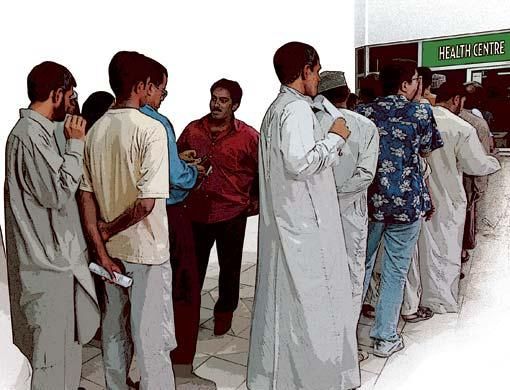Abu Dhabi: Unlike some other emirates, it is quite clear that the Health Authority - Abu Dhabi (HAAD) is in charge of the healthcare in Abu Dhabi allowing the Ministry of Health to focus on federal health.
One of the major steps HAAD has taken was to provide affordable healthcare to everyone in Abu Dhabi through the introduction of mandatory health insurance.
"It took only 14 months to get over one million people health insurance. Our next step is UAE nationals and this will happen by January 2008," said Dr Klaus Boecker, head of the HAAD Strategy Department.
Partnerships with international institutions to help improve health care facilities in the nation have also taken place recently, including the management of hospitals.
Cleveland Clinic, ranked one of the top three hospitals in the USA, recently signed a contract with HAAD on June 4 to manage Shaikh Khalifa Medical City (SKMC).
Johns Hopkins Hospital has managed Tawam Hospital in Al Ain; Medical University of Vienna and Vamed signed a four-year agreement with HAAD, June 11, to operate Al Ain Hospital, and a long term agreement was signed in June 18 with the New England Centre for Children (NECC) under the terms of which the Massachusetts-based institute will establish a comprehensive education programme and services for children affected by Autism Spectrum Disorders (ASD) and their kin.
In addition, HAAD formed an 'inspection team' of around 17 people with various specialisations to visit all health care facilities randomly and plans to increase visits to two times a year. "Inspectors are trained by us at HAAD. We need to do all we can to fulfil our licence criteria," said Dr Boecker.
Introducing insurance health policies and international partnerships are among a few steps HAAD is looking into. There are also campaigns against smoking and plans for a transplantation foundation and steps towards enhancing preventive medicine.
Educating patients
The common problem faced by HAAD and public hospitals is bed space. There are about 700 hospital rooms for instance in SKMC.
"We probably have just enough beds; our problem is we don't do a good job in taking our patients back home. Our population growth is 7 per cent per year. We will eventually have a shortage of beds. We need to figure out a strategy to educate the patients on how long they can stay," said Dr Kenneth Ouriel, Chief Operating Officer, SKMC.
The solution, said Dr Boecker is to treat those patients in primary care and free about 25 per cent of hospital capacity. "We are aware that patients spend unnecessary days in hospitals and this should be eliminated. As the population grows we will add more capacity, 25 per cent of bed days don't need to be bed days."
People say
"I was diagnosed earlier this year with cervical cancer. I was initially diagnosed in my country and got a second opinion from Corniche Hospital, Abu Dhabi, and was transferred to Tawam Hospital, Al Ain. Once I was admitted to hospital to undergo chemotherapy they immediately accommodated me for two months and thanks to my health insurance I paid nothing. Now I am 100 per cent cured. I am very satisfied with the medical care I received and they gave me hope to live again."
Marietta Dungo,
Filipina, 54, Abu Dhabi
"I rarely go to hospitals here, but I have one previous experience with them. One day when I used to work in Al Ain my blood pressure was low and I fainted. My colleagues called the ambulance and I was told they were there in minutes. I was then transferred to Jimmy Hospital in Al Ain where they did a general check up on me and released me only when they were sure I was on my feet. The service and follow up was fast and professional. From my brief experience with hospitals here, I am very satisfied with healthcare."
Mohammad Ahmad,
39, Egyptian, hairdresser, Abu Dhabi
"We have a health clinic close by, but for more serious cases we are usually referred to Fujairah hospital. Despite being a major medical facility, Fujairah hospital falls far short of standards in Dubai, for example. I currently have to make a 400 kilometre round-journey to attend Rashid Hospital in Dubai because the treatment I need is not available here. A year ago I had an operation there and when I went to Fujairah hospital to have my dressing changed, I was referred to another medical centre, instead I went to Kalba (part of the emirate of Sharjah) where I was treated quickly and professionally."
Ahmad Mohammad Abdul Rahman,
64, Emirati, Fujairah
Have your say
Do you think there is a need for more hospitals? Is the healthcare system lacking? If yes, why do you say so? Tell us at letter2editor@gulfnews.com or fill in the comments form below.
Your comments
UAE has enough hospitals and clinics, but the problem is they are understaffed.
Romeo Castillo
Abu Dhabi,UAE
Posted: October 05, 2007, 04:55













